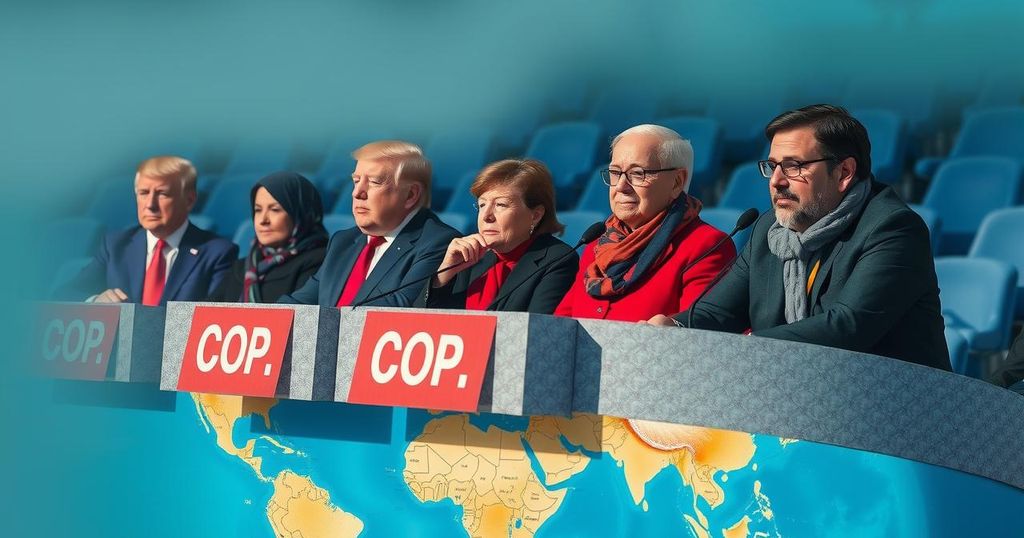World leaders are skipping this year’s COP climate conference, including Papua New Guinea’s Prime Minister James Marape, who protested industrialized nations’ inaction on climate change. Argentina also withdrew its delegation under President Javier Milei, raising concerns over the potential exit from the Paris Agreement. France’s absence also stems from recent political tensions, indicating growing dissatisfaction with the global climate dialogue.
Amidst the persistent climate crisis, numerous world leaders are opting to forego participation in the current year’s COP climate conference, heightening concerns regarding global commitment to environmental issues. Each year, this gathering of global leaders, scientists, and advocates assembles to address the escalating repercussions of climate change. The urgency to confront this crisis continues to intensify, particularly in light of devastating weather events and substantial economic losses tied to climate-related disasters. Yet, certain nations, such as Papua New Guinea, have made the extraordinary decision to boycott the conference entirely to protest the lack of action from industrialized nations.
Papua New Guinea’s Prime Minister, James Marape, expressed dissatisfaction with the inaction of larger countries, highlighting a historic failure to provide adequate support to nations most affected by climate change. “Our non-attendance this year will signal our protest at the big nations,” stated Prime Minister Marape, underlining the need for accountability from those nations with significant carbon footprints. He lamented the inadequate funding for climate-related pledges and called attention to the dire situations faced by vulnerable nations holding essential forests.
In a related development, Argentina’s newly elected President, Javier Milei, unexpectedly withdrew his country’s delegation from the COP29 after a week of participation, raising alarms about potential implications for Argentina’s stance on the Paris Agreement. Numerous G20 leaders also opted to skip the conference, although they sent representatives in their stead. France’s minister of ecological transition, Anges Pannier-Runacher, announced her own boycott after a controversial statement from Azerbaijani Prime Minister Ilham Aliyev, leading to further tensions within the forum.
The COP climate conference, an annual gathering organized by the United Nations, serves as a critical platform for addressing the challenges posed by climate change. As nations converge to discuss solutions and strategies, the absence of key leaders raises significant questions about global commitment levels. Papua New Guinea’s boycott serves as a stark reminder of mounting frustrations regarding the disparity between pledges made by larger nations and the tangible support delivered to vulnerable regions facing the consequences of climate change. Additionally, the withdrawal of Argentina’s delegation under the new leadership of President Milei reflects a potential shift in the region’s environmental policy, mirroring concerns expressed by other nations about the commitment to global agreements like the Paris Accord.
In summary, the decision of various leaders to skip this year’s COP climate conference, including notable absentees like Papua New Guinea and Argentina, signals a broader discontent with the international community’s response to climate change. Prime Minister Marape’s protest highlights the ongoing challenges faced by developing nations amid the climate crisis, while President Milei’s actions may foreshadow a significant policy shift for Argentina. As the implications of these decisions unfold, the need for urgent and coherent action to combat climate change remains paramount.
Original Source: abcnews.go.com






